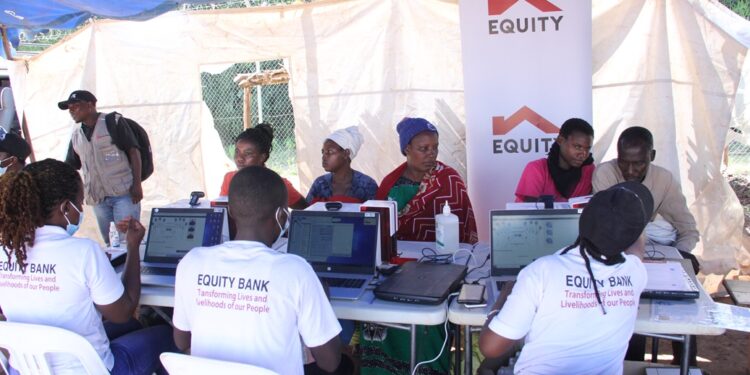Equity Bank’s Bold Approach: Transforming Refugees into Entrepreneurs through Micro-Credit
The Remarkable Transformation in Nakivale Refugee Settlement
In the vast Nakivale Refugee Settlement in South Western Uganda, a remarkable transformation is taking place. Equity Bank has embarked on a groundbreaking initiative, turning refugees into thriving entrepreneurs through micro-credit and micro-enterprises. This initiative is reshaping the lives of thousands of refugees, providing them with a path to self-sufficiency and economic stability.
Empowering Refugees Through Entrepreneurship
Equity Bank’s approach to empowering refugees through entrepreneurship is truly inspiring. By providing access to micro-credit, refugees are able to start their own businesses and become self-reliant. This not only creates economic opportunities for refugees, but also strengthens the local economy and fosters community development.
Through training and mentorship programs, Equity Bank is equipping refugees with the skills and knowledge they need to succeed as entrepreneurs. This comprehensive support system is essential for ensuring the success of refugee-owned businesses and fostering long-term sustainability.
How Equity Bank’s Initiative Will Impact Individuals
For individuals, especially refugees, this initiative will have a transformative impact. By providing them with the resources and support they need to start their own businesses, Equity Bank is giving refugees a sense of agency and empowerment. This will not only improve their economic well-being, but also their sense of self-worth and dignity.
Refugees who participate in this program will have the opportunity to build a better future for themselves and their families. They will be able to break free from the cycle of poverty and dependency, and create a path to self-sufficiency and economic stability.
How Equity Bank’s Initiative Will Impact the World
On a larger scale, Equity Bank’s initiative has the potential to have a ripple effect that extends far beyond the Nakivale Refugee Settlement. By empowering refugees to become entrepreneurs, Equity Bank is not only changing individual lives, but also reshaping perceptions of refugees and their potential contribution to society.
This initiative demonstrates that refugees are not helpless victims, but capable and resourceful individuals who can make valuable contributions to the economy and society at large. By investing in refugees and providing them with opportunities to thrive, Equity Bank is setting a powerful example for other financial institutions and organizations around the world.
Conclusion
Equity Bank’s bold approach to transforming refugees into entrepreneurs through micro-credit is a shining example of the positive impact that financial institutions can have on vulnerable populations. By providing refugees with the tools they need to succeed as entrepreneurs, Equity Bank is not only changing individual lives, but also creating a more inclusive and prosperous society for all.





